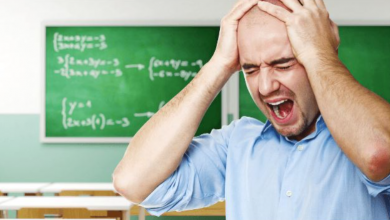Education
The Role of Student’s Prior Knowledge in Learning
Maryem Badreddine is an English trainee teacher in Casablanca. She graduated from Chouaib Dokkali University in 2014. She got another BA from the Faculty of Education in Rabat. Maryam majored in Linguistics and in Applied Linguistics: Language and Pedagogy. She conducted a research on “ Brain-baised Differences and Their Effects on Language Learning: Vocabulary as an example”. Her areas of interest are psycolinguistics, brain-based learning and neuroscience. Her favorite slogan “ Think first, write second”.
Casablanca, Morocco
Teachers often pay no attention to the students’s prior knowledge. It is really shocking when teachers constantly consider themselves the owners of knowledge and that the student is just a blank slate-tabularasa. A quite large number of people argue that “prior knowledge” is crucial to the student’s learning for many reasons.
First, in the learning/teaching process, it is very important that teachers pay due attention to the student’s prior knowledge in order to activate his mental schemata. That is, teachers should build their lessons on the knowledge students accumulate from the already learned lessons. Piaget propounds a plethora of theories that elucidate nicely the pivotal role prior knowledge plays in learning. He argues that meaningful learning necessitates making a link between the student’s prior knowledge and the new information he receives from the outside. This mental process that students go through facilitates learning and makes materials remain in the student’s memory for a long time. In the contrary, rote learning-learning by heart-makes students passive recipients, in other words, knowledge consumers. Underestimating the considerable body of knowledge that students have will surely thwart learning.
Secondly, there is prima facie evidence that “prior knowledge” facilitates learning. Furthermore, it facilitates teaching, too. Teachers should gauge the prior knowledge of the students to know the students’ needs and hence achieve the underlying objectives of a certain lesson. Therefore, successful learning will never happen unless the teachers eschew the belief that the student is just a “tabularasa”.
To conclude, it’s very important that teachers explain their lessons depending on the student’s prior knowledge so that learning occurs in appropriate conditions. A good teacher is, undoubtedly, a good researcher, a theorist and a good practitioner who must experience everything to develop his own teaching methods and styles. In the words of the foremost linguist Kumaravadivlu ‘a good teacher is the one who theorizes from what he practised and practises what he has already theorized’.



